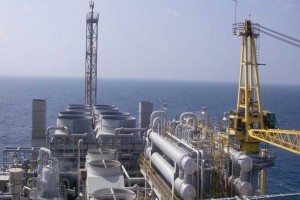Event Details
The program aims to provide an intellectually challenging academic course of study that will give the ability to analyze and evaluate key theoretical concepts and practical applications in issues of oil and gas management. The program Essential Skills for Oil & Gas Managers & Supervisors aims to impart a better comprehension of the oil and gas business value chain.
COURSE OUTLINE
Generation, migration, accumulation and exploration of petroleum
- Identification of common rocks and minerals
- Ocean environment and plate tectonics
- Traps and trapping mechanisms
- Geophysical & Geochemical surveys
- Offshore drilling and production
- Exploratory drilling& testing the well
- Casing and cementing the well
- Geologic classification types of reservoir and reservoir drive mechanisms
- Development of oil and gas fields
- Estimation of reserves
- Surface treatment and storage
- Enhanced oil recovery
Distribution transmission and transportation
- Geopolitics and world energy markets
- The geopolitics of oil pipelines
- OPEC and the future role of a cartel
- Overview of world petroleum consumption, supply, and prices
- Sustainable energy: myths and realities
- The global oil and gas industry
- Petroleum; composition, classification and properties
- Natural gas; composition, classification and properties
Petroleum economics
- World petroleum consumption, supply, and prices, prospects for the future
- Energy trading and commodities
- Futures, options, and hedging
- A brief history of real options
- Introduction to energy finance and economics
- Developing and Financing Oil and Gas projects
- Oil and gas accounting
- Discounted cash flow (DCF) and time-value considerations
- Apply the present value and future value formulae (NPV)
- Inflation, real, and nominal (time value of money)
- Internal rate of return (IRR)
- Hurdle rates and minimum acceptable rates of return
Financial and Energy Risk Management
- Introduction to energy risk management
- Risk management and types of risk
- Risks in trading energy commodities
- Geopolitical risks and opportunities
- Risk and opportunity analysis
- The nonlinearity and complexity of uncertainty
- Carbon capture and environmental issues
- The future of the global oil and gas industry
The evolution of a safety culture
- Culture and Safety
- Defining a Value System
- A New Management Safety System
- Leadership and Teamwork
- Understanding why employees put themselves at risk
- Assessing the organisational culture
- Active Listening
- Nonverbal Behaviours of Communication
- Speaking Hints
- Communication and Leadership
- The Communication Process
- Barriers to Communication
- Presentation Skills
Successful negotiation
- Steps in negotiation
- Negotiating fears
- Making choices
- Thinking creatively
- Coping with criticism
- Approaches to negotiation
- Negotiating roles
- Creative bargaining
- BATNA is an acronym that denotes the Best Alternative To a Negotiated Agreement Relational influence and power
- Negotiating with integrity
- Dealing with aggressors and Conflict
- Negotiating globally
- Course summary and roundup
TRAINING METHODOLOGY
The training methodology combines lectures, discussions, group exercises and illustrations. Participants will gain both theoretical and practical knowledge of the topics. The emphasis is on the practical application of the topics and as a result participant will go back to the workplace with both the ability and the confidence to apply the techniques learned to their duties.
This course is available in the following locations:
Nigeria - $3000
Ghana - $6500
Rwanda - $7500
UK - $8500
USA - $8500





